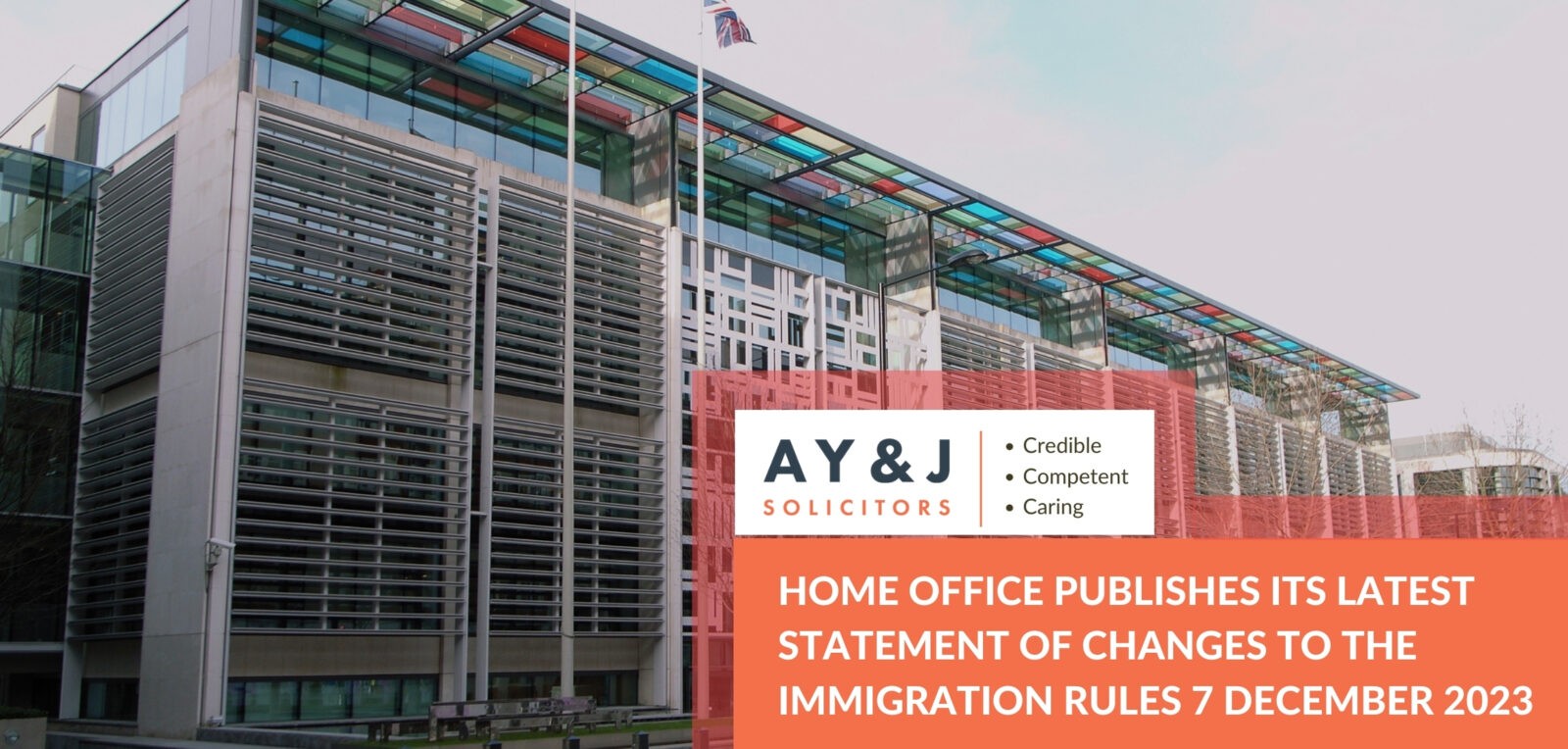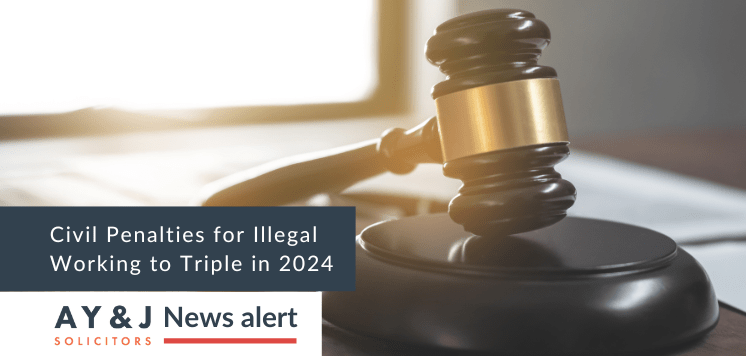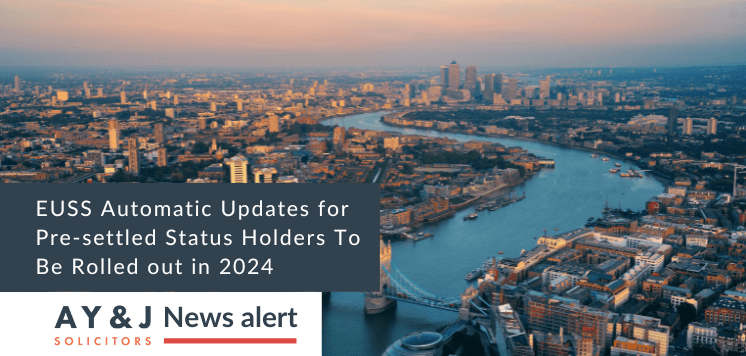On 7th December 2023, the Home Office published its latest Statement of Changes to the Immigration Rules. The new Statement of Changes:HC 246
- Amend the Immigration Rules for the EU Settlement Scheme
- Increase the number of permitted activities under UK visitor visas
- Relax the travel documents requirements for educational groups arriving from France and
- Expand the number of places and foreign nationals eligible under the UK Youth Mobility Scheme.
Most of the changes will come into force on 31st January 2024. In this article, we will discuss each of the key changes set out in the December 2023 Statement of Changes to the immigration rules (HC 246).
Amendments to the Immigration Rules for the EU Settlement Scheme (EUSS)
The changes include a number of amendments to the EUSS rules, as follows:
- To add Appendix Returning Resident (as set out in the Statement of Changes HC 1780), which applies if a person whose indefinite leave to enter or remain under the EUSS has lapsed and wishes to return to and settle in the UK.
- To prevent a valid application to the EUSS as a joining family member being made by an irregular arrival to the UK (e.g. “small boat” arrivals) as well as by an “illegal entrant” to the UK
- To require a person in the UK as a visitor to make an application to the EUSS as a joining family member within three months of their arrival (reasonable grounds for delays may still be permitted)
- To allow limited leave to enter or remain granted under the EUSS to be curtailed (subject to a right of appeal) where it is “proportionate to do so where the person never met the requirements of Appendix EU”.
Increase in the number of permitted activities under UK visitor visas
The changes will increase the number of activities allowed under UK visitor visas, as follows:
- The intra-corporate activities permitted under visitor visas are being changed to a) remove the prohibition on visitors working directly with clients and b) introduce a new requirement that any client-facing activity must be incidental to the visitor’s employment abroad and does not equate to the offshoring of a project or service to their overseas employer.
- Clarification that visitors can work remotely (e.g. attend an online meeting) whilst in the UK, but this must not be the primary purpose of their visit.
- Flight crews arriving in the UK as part of a Civil Aviation Authority-approved wet lease arrangement between the months of March and October will be granted permission to enter as a visitor.
- Scientists, researchers, and academics who are conducting research in the UK as part of their visit will be allowed to enter as visitors. Under the current rules, scientists and researchers are only permitted to undertake “conduct independent research”, and academics can only conduct research for their own purposes if they are on sabbatical leave from their home institution. The notes on the amendments state that this change will not apply to academics applying for a 12-month visit visa or if they are applying to extend their permission from within the UK.
- Expanding the permitted activities for legal professionals. This will allow overseas lawyers to provide legal services, including:
- Giving advice
- Appearing in arbitrations
- Acting as an arbitrator or mediator
- Acting as an expert witness
- Appearing in court in jurisdictions which allow short-term
- call or where qualified in that jurisdiction
- Attending conferences, teaching
- Providing advocacy for a court or tribunal hearing
- Litigation, and
- Transactional legal services, including drafting contracts.
- The Permitted Paid Engagements (PPE) will be amended to allow visitors to be paid for speaking at conferences.
- All visitors will be able to undertake PPE without the need for a special visa (however, visitors intending to undertake PPE must still have arranged their PPE activity prior to travel to the UK, and this must be undertaken within 30 days of arrival in the UK as a Visitor).
Relax the travel documents requirements for educational groups arriving from France
Under the latest set of immigration rule changes, children aged 18 and under who are studying at a school in France will be able to come to the UK on an organised educational trip without the need to show passports or visit visas.
The changes also clarify that:
- EEA and Swiss national children who are aged 18 and under, who are residents and studying at a school in France, will be able to use their national identity cards instead of passports to visit the UK on an organised school trip.
- Children from other countries (visa nationals) who are aged 18 and under, who are residents and studying at a school in France, can visit the UK on an organised school trip without the need to obtain a visit visa. There is still a need to hold a passport, however.
Expanding the number of places and foreign nationals eligible under the YMS
The Youth Mobility Scheme (YMS) route will also be expanded under the new immigration rules. There is a new agreement with Uruguay, which means eligible nationals will be able to come to the UK on a YMS visa.
The immigration rule changes also increase the number of eligible people from certain countries who can come to the UK on a YMS visa. The eligible age range for nationals of the Republic of Korea is being changed from 18-30 to 18-35. The requirement to obtain an invitation before applying for a YMS visa is also being removed for Japanese and South Korean citizens.
A Y & J Solicitors is a specialist immigration law firm with extensive experience with all types of visa applications. We have an in-depth understanding of immigration law and are professional and results-focused. For assistance with your visa application or any other UK immigration law concerns, please contact us on +44 20 7404 7933 or contact us today. We’re here to help!









